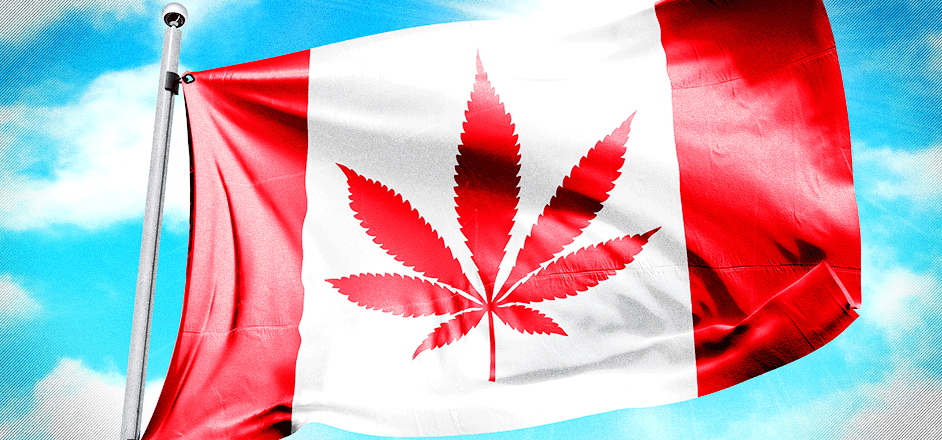When Canada made weed legal in October, becoming the second country after Uruguay, they leveled up big in the international weed game. Overnight, Canadian cannabis companies would gain superior access to capital and international markets. Next, they will be rapidly amassing the know how and intellectual property to successfully operate and grow global cannabis businesses. If this sounds like bad news for the U.S., it is, but how big these advantages are and whether they will last, depends largely on the U.S.
The U.S. and Canada have experienced many parallels in the way their cannabis regimes have developed. For one, they both got into the weed game around the same time. In the U.S., the big moment was California’s Proposition 215 which was passed by voter initiative in 1996–a medical marijuana milestone and the beginning of a State’s Rights approach to cannabis in the U.S. In Canada, it was the enactment of the Marihuana Medical Access Regulations (MMAR) five years later in 2001.
Both of these laws would allow for people, with doctors orders, to grow their own weed or designate a caregiver to do it for them. However, the MMAR would also make Health Canada the third source of legal weed. In this respect, the Canadian federal government started to experiment with weed long before the American feds. Yet it wasn’t for another twelve years that Canada would truly prime itself for the creation of a national market.
The Marihuana for Medical Purposes Regulations (MMPR) varied greatly from the MMAR. First, Health Canada would no longer be a supplier of medical marijuana. Second, patients would no longer be able to grow it themselves or designate a caregiver to do it. Third, Health Canada’s approved suppliers would become the exclusive sources of medical cannabis. Requiring cannabis to be purchased on the regulated market, like alcohol, created big companies to meet that demand.
This MMPR was held unconstitutional in 2016 for failing to provide “reasonable access” to medical cannabis. At this time, there were 34 licensees, that is, companies authorized to grow and sell medical marijuana, Interestingly, a few are now the largest cannabis companies in the world. Tilray, Aphria, and Tweed, now owned by Canopy Growth Corp., are among them.
The concern looms that these companies, which were already huge before Canadian legalization, will become untouchable global powerhouses. The analogy is often made to the American Prohibition of alcohol. Seagrams, a Canadian company, flourished during this time in Canada. Meanwhile, it was the Al Capone’s who did in the U.S.
Canadian companies’ access to capital markets is the worst fear of American entrepreneurs and investors. The problem is twofold. Not only are Canadian companies able to leverage them for greater growth, but U.S. companies do, too, even if that means parking their money elsewhere. Notable companies to go public in Canada include Dixie, Cannamerica, and MedMen.
Canadian companies also have greater access to U.S. stock markets, like the NYSE. Since their operations are located on Canadian soil, they don’t technically violate U.S. law, and that’s the “loophole” that allows them to list. Canopy, Aurora Cannabis, and Aphria all trade on the NYSE.
Another big concern is what these well-heeled Canadian companies will do with all that money. In an ad published in the Wall Street Journal on October 16th, the C.E.O. of Terra Tech, Derek Peterson, warned President Trump:
"If we don't change our laws here and the banks don't have a chance to come in and fund companies and have access to out capital markets, we're going to end up having our industry owned by Canadian conglomerates."
Canada will also enjoy a newly open and robust cannabis research culture. Indeed, the Canadian government is currently funding studies at hospitals and universities on a range of public health issues. Last January, the Canadian Institute of Health Research made an historically large investment when it committed 1.4 million to fourteen different studies.They’re tackling questions like whether cannabis use affects communities differently, including indigenous ones; how it impairs drivers; and what it’s actually effective at treating for medical purposes.
Then there’s a whole different kind of research that Canada may win big on. Research and development and the tremendous value, in intellectual property, that it creates. Bruce Linton, CEO of Canopy Growth Corp, has ominously warned that this is the only Canadian advantage that may be lasting.
Canada is also taking a lead in selling weed in the international markets. They’re already supplying Germany, the Czech Republic, Australia, and New Zealand with either cannabis flower or oil. In a twist of irony, the D.E.A. has even given Canada the go ahead to provide cannabis oil for a California study on cannabis and tremors.
Is there any hope for the U.S.? Without a doubt. Reports are multiplying that Spring 2019 will bring some form of federal cannabis legalization. For a second, let’s assume this happens. That’s where things get pretty interesting for the U.S. Because suddenly, these Canadian advantages may be moot. The U.S. is nearly ten times the size of Canada. So is its potential market for regulated cannabis.
In California, which is more populous than Canada, things are moving full speed ahead. The scale of operations is increasing. Intellectual property and know how is accruing. Brands are being built and fortunes are being gambled. The same stuff that’s happening in Canada. It’s easy to forget when all you hear is Canada is winning.
Certainly, the U.S. is disadvantaged; and the longer Canada has a national market, and the U.S. doesn’t, the further the U.S. falls behind. Therefore, it is vital for the U.S. to federally legalize it as soon as possible.
So President Trump, can we legalize it already? The sooner we do, the sooner the entrepreneurial American spirit wins. The sooner the world’s largest market realizes its full potential.



Leave a Reply
You must be logged in to post a comment.